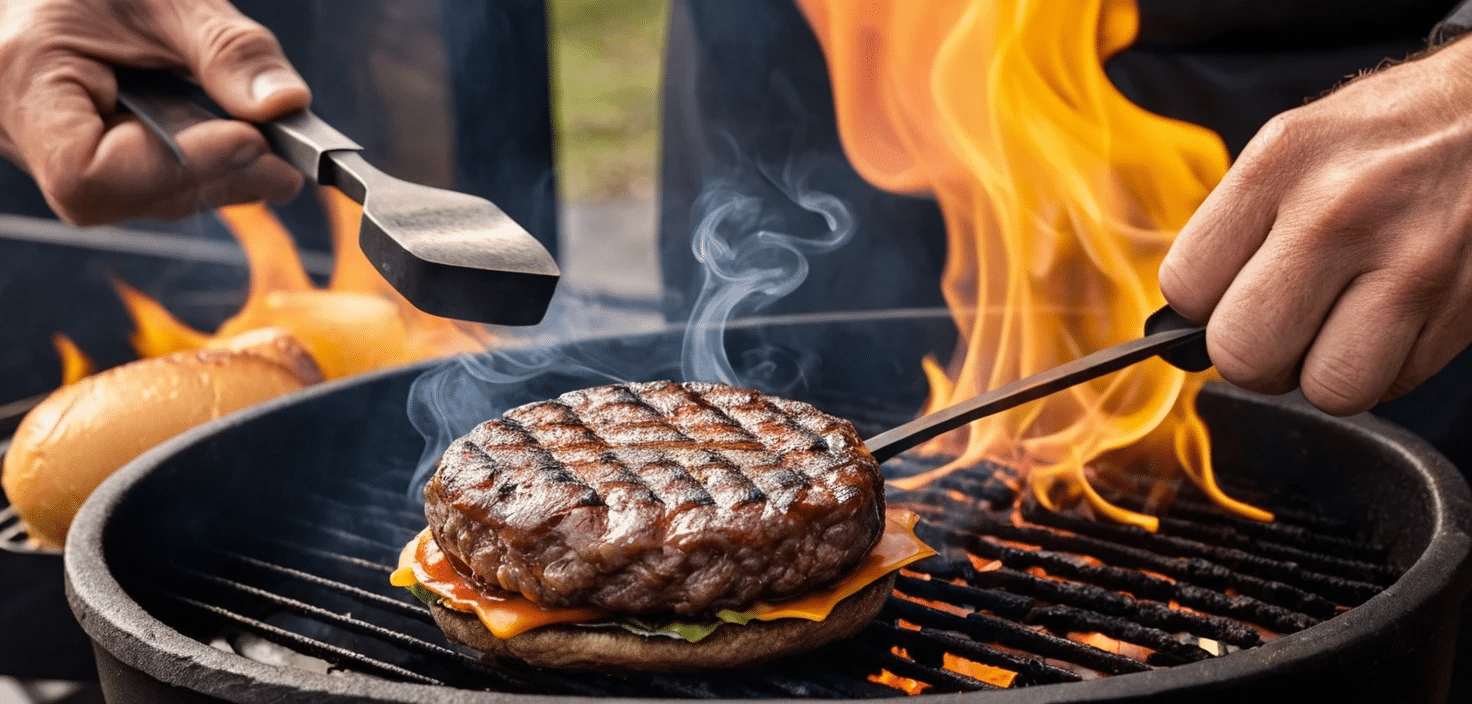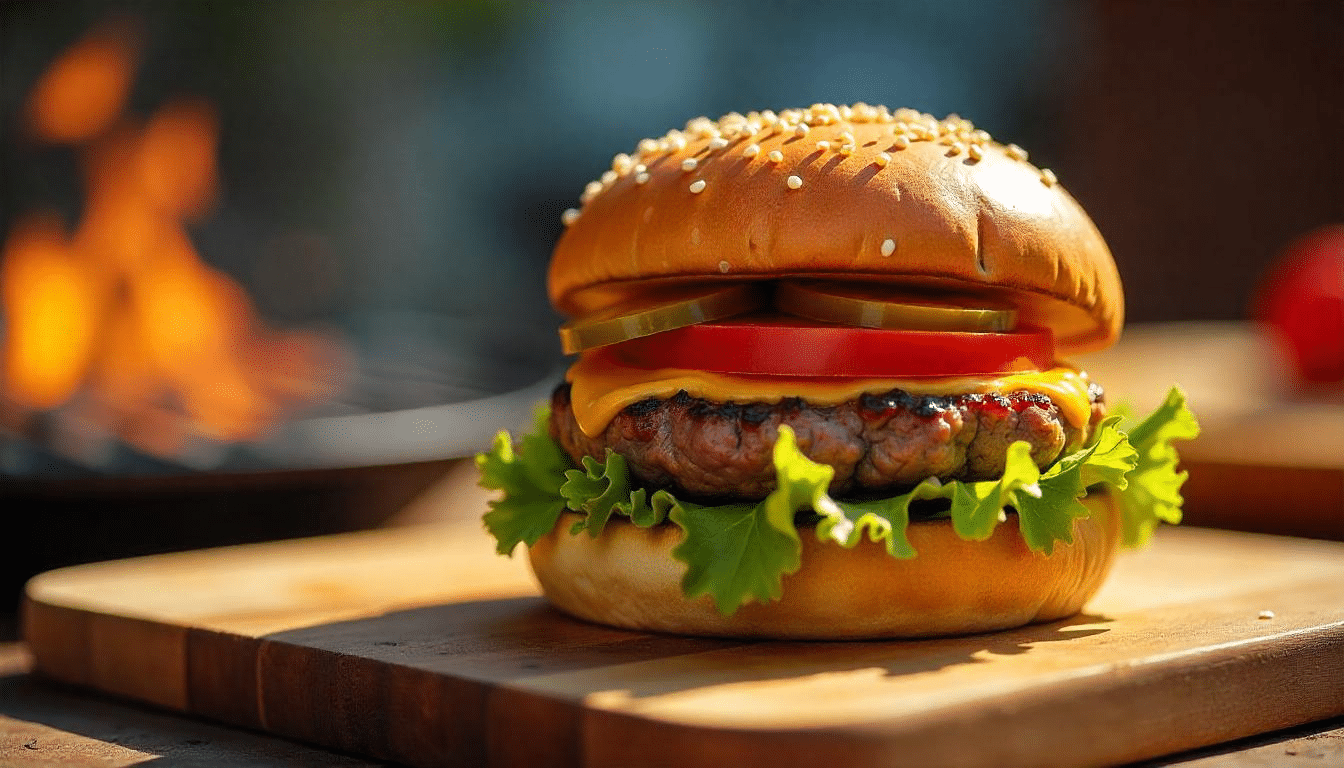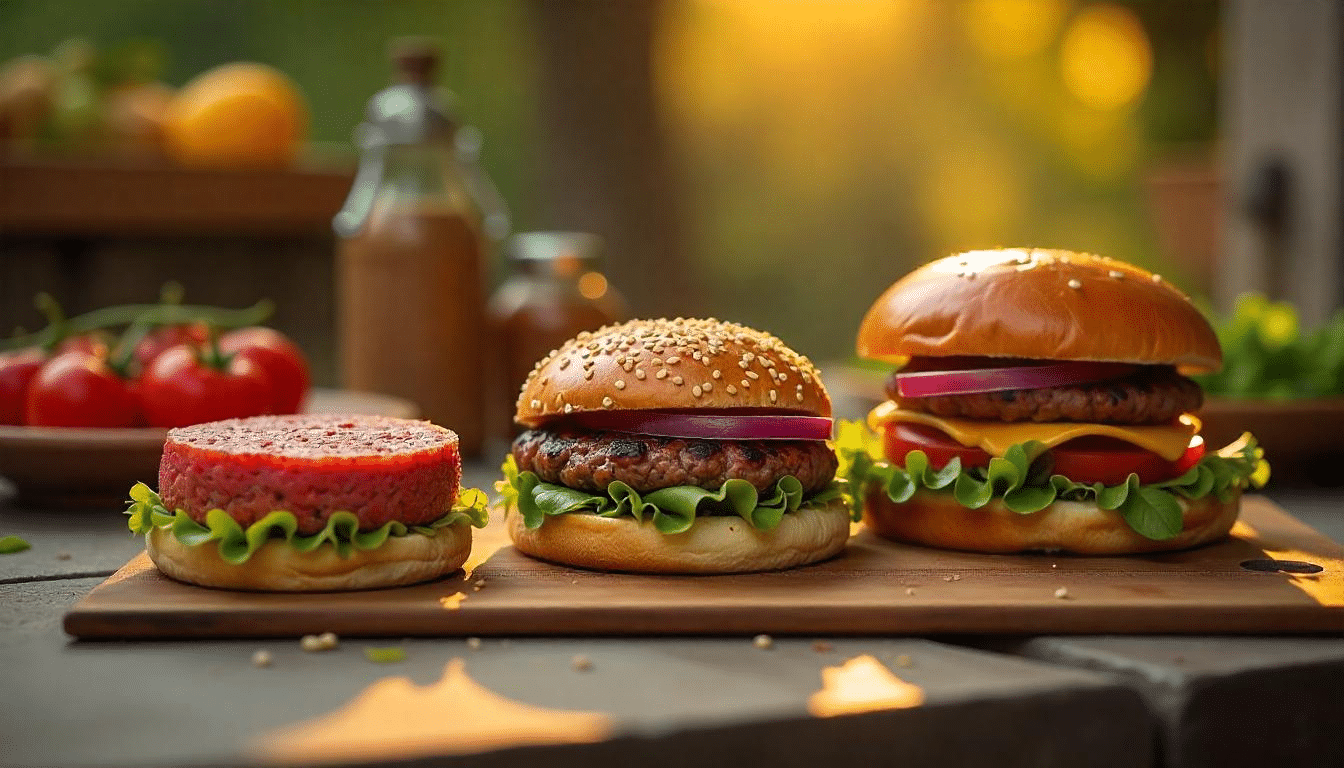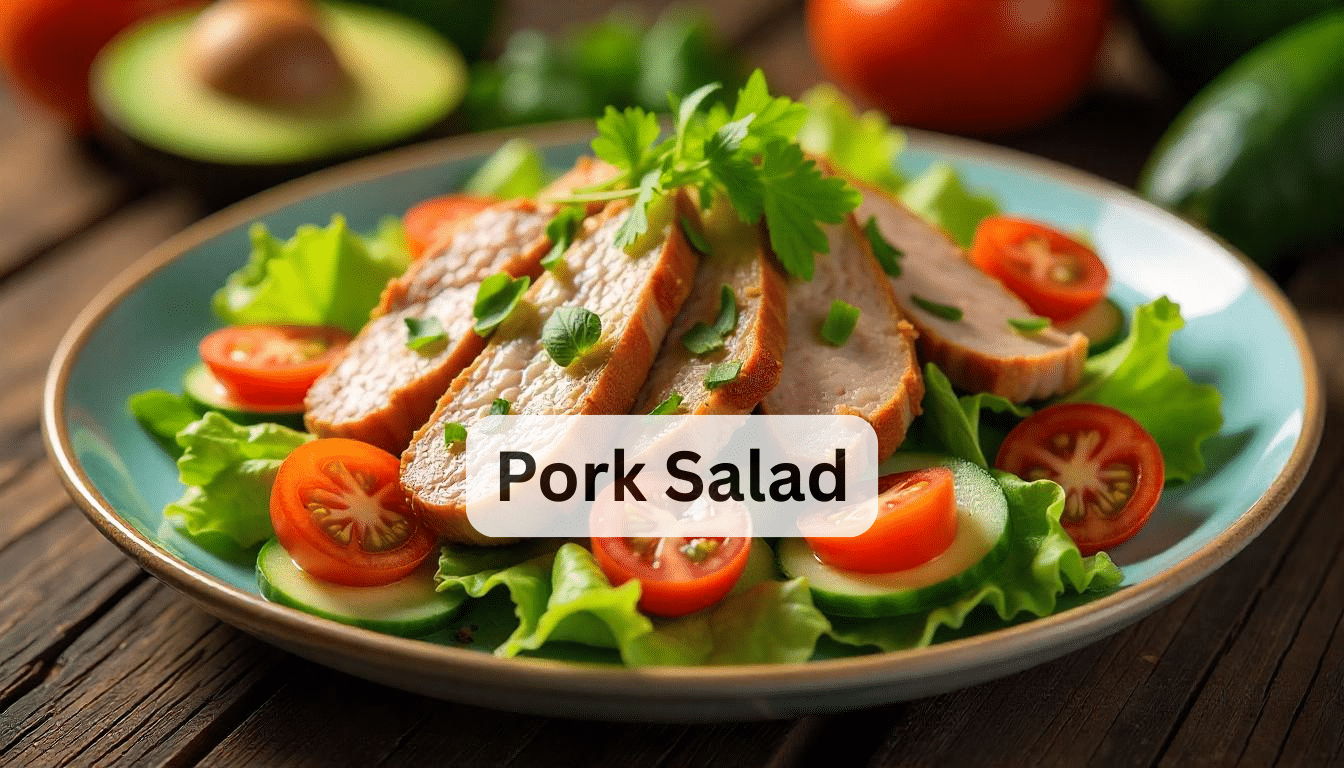A good burger isn’t just about fresh ingredients or the perfect bun. One often overlooked aspect is the burger weight. Whether you’re grilling on a sunny Australian day or cooking up a hearty dinner, understanding burger weight can elevate your burger game to the next level.
In this guide, we’ll dive deep into what burger weight is, why it matters, and how you can perfect it for your next BBQ in Australia. From juicy to lean, there are various factors to consider when choosing the right burger weight for your patties. Let’s explore!
What is Burger Weight?
At its simplest, burger weight refers to how much the patty weighs before it’s cooked. This measurement is crucial because it impacts everything from cooking time to texture and flavour. Typically, burgers range in weight from 100g to 250g, but the optimal weight can vary based on your preferences and the style of burger you’re making.
Why Does Burger Weight Matter?
- Juiciness and Texture: The weight of the patty determines how juicy and tender the burger will be. A patty that is too thin may dry out quickly, while a patty that is too thick might not cook evenly. The right balance is key to achieving the perfect bite every time.
- Cooking Time: Larger patties take longer to cook through, whereas smaller ones cook quickly. Understanding burger weight helps you avoid undercooked or overcooked burgers, ensuring they are safe and delicious.
- Portion Control: If you’re feeding a crowd or serving individual portions, knowing the ideal burger weight ensures consistent servings. This is especially important for large BBQs, where every guest deserves a satisfying burger!
- Burger Bun Fit: The weight of your patty should match the size of your bun. A massive patty on a small bun can lead to an imbalance, making it hard to eat without a mess. By adjusting burger weight, you can achieve a better burger-to-bun ratio.

How to Choose the Right Burger Weight
There’s no one-size-fits-all when it comes to burger weight, but understanding the factors at play can guide you towards the best choice. Here’s how you can decide which burger weight works best for you.
Consider the Type of Burger
Classic Aussie Burger
If you’re going for the traditional Aussie burger, a burger weight of 150g is often ideal. This allows you to get the perfect balance of juiciness and texture while fitting comfortably in a standard burger bun.
Gourmet Burger
For more gourmet creations, like a burger with gourmet cheese or exotic toppings, a heavier patty of around 200-250g can work well. The weight helps support the heavier ingredients and provides a solid bite.
Sliders
Sliders are the small, tasty versions of regular burgers, and they typically range from 100-120g. These are perfect for grazing or for BBQs where variety is key.
Beef or Other Meats?
The choice of meat also influences burger weight. Beef is the most popular choice, but if you’re using other meats like chicken, lamb, or plant-based options, the weight may need to vary slightly.
- Beef: 150g-200g is standard for a juicy, satisfying burger.
- Chicken: Leaner than beef, so you may want to aim for slightly lighter patties of 120g-150g.
- Lamb: Since lamb is often fattier, a 180g-200g patty can ensure that you maintain a rich flavour without it becoming greasy.
- Plant-based: Many plant-based patties are pre-made and come in standard weights of 100g-150g. These can vary based on brand and recipe, so always check before cooking.
Burger Weight for Cooking
The weight of the patty also affects the cooking process. Thicker patties will take longer to cook, which can lead to overcooking on the outside while still leaving the inside raw. Thinner patties cook faster but may lack the richness that comes with a thicker burger.

Here’s a rough guide for cooking times based on burger weight:
- 100g patty: 3-4 minutes per side (for medium-rare)
- 150g patty: 4-5 minutes per side (for medium)
- 200g patty: 5-6 minutes per side (for medium-well)
- 250g patty: 6-7 minutes per side (for well done)
These times are estimates and can vary depending on your grill or cooking method. Always use a meat thermometer to ensure your burgers reach a safe internal temperature of 75°C for beef or 85°C for poultry.
Tips for Perfect Burger Weight Every Time
To get that perfect burger every time, consistency is key. Here are some simple tips for making sure your burger weight stays just right:
Use a Food Scale
A food scale is an invaluable tool for creating consistent burger patties. Simply weigh the meat before forming the patties, ensuring each one is the same weight. This is particularly helpful when grilling for a crowd to ensure each person gets the same portion size.
Don’t Overwork the Meat
When forming your patties, avoid overworking the meat. Overmixing or pressing the patties too hard will result in a dense, tough burger. Gently form your patties by hand, keeping them as light and airy as possible for that perfect texture.
Create a Dimple
A great tip for even cooking is to make a slight indentation in the centre of your patty before cooking. This helps the patty cook evenly, reducing the likelihood of puffing up in the middle as it cooks. This is especially important for thicker patties.
Adjust for the Grill
Whether you’re using a gas grill, charcoal, or even a flat top grill, remember that each cooking method has its quirks. For instance, charcoal tends to be hotter than a gas grill, which means you may need to reduce your cooking time slightly for burger weight on a charcoal grill.
Burger Weight and Toppings: Striking the Right Balance
While burger weight plays a big part in your burger’s success, the toppings are just as important. Here’s how to balance the two:
- Light toppings: If you’re using light toppings such as lettuce, tomato, and pickles, aim for a slightly heavier patty (around 200g) to ensure it stands out.
- Heavier toppings: For rich, indulgent toppings like melted cheese, bacon, or fried onions, a slightly lighter patty of 150g will prevent the burger from becoming too heavy and hard to manage.
Remember, a good burger should allow each ingredient to shine through, so don’t overload it with toppings that may drown out the flavour of your carefully chosen burger weight.
Common Mistakes to Avoid
When dealing with burger weight, it’s easy to make a few common mistakes. Avoid these pitfalls to ensure you’re grilling the perfect burger:

- Using uneven weights: If your patties aren’t the same size, some will cook faster than others, leading to inconsistencies. Always aim for uniformity.
- Pressing too hard on the patty: Flattening your burger with a spatula while cooking may seem tempting, but it will squeeze out the juices, leaving you with a dry patty.
- Skipping the rest time: Let your cooked patties rest for a few minutes before serving. This allows the juices to redistribute and results in a juicier, more flavourful burger.
Frequently Asked Questions
What is the ideal burger weight?
The ideal burger weight typically ranges between 150g to 200g for a juicy, well-cooked patty. However, the right weight can vary based on personal preference and the type of burger you’re making. A lighter patty, like 100g, works well for sliders, while a 200g patty is perfect for a hearty, gourmet burger.
How does burger weight affect cooking time?
The heavier the patty, the longer it will take to cook. A thicker patty (200g or more) will need more time on the grill to cook thoroughly, while a lighter patty (100g) will cook faster. Adjust your cooking time to ensure your burger reaches the desired level of doneness without overcooking.
Can I adjust burger weight to suit my bun size?
Absolutely! The patty size should complement the bun size. If you’re using a smaller bun, a lighter patty (100g to 120g) will fit better. For larger buns, go for a heavier patty (150g to 200g) to ensure the perfect balance between burger and bun.
Does the type of meat affect the burger weight?
Yes, different meats have varying fat content and moisture levels, which can affect the burger weight. Beef burgers typically weigh around 150g-200g for the perfect balance of juiciness and texture. For leaner meats like chicken or turkey, you might opt for a lighter patty, around 120g to 150g.
How can I ensure my burgers are evenly cooked?
To ensure even cooking, use a consistent burger weight for all patties, and form them gently without pressing too hard. You can also create a slight indentation in the middle of each patty to help it cook evenly. Always check the internal temperature with a thermometer to make sure it’s cooked through.
What’s the best way to form a burger patty?
To form a perfect burger patty, gently shape the meat into a ball and then flatten it into a round shape. Avoid overworking the meat, as this can lead to tough, dry burgers. Aim for uniform burger weight to ensure consistent cooking results.
Should I use a food scale for burger weight?
Using a food scale is highly recommended if you want consistency. Weighing each patty ensures that every burger is the same size, which results in even cooking. This is especially helpful when grilling for a crowd or when you want to maintain portion control.
Can I freeze patties before cooking?
Yes, you can freeze patties before cooking. If you plan to freeze your patties, make sure they’re wrapped tightly in plastic wrap or placed in a freezer-safe bag. Freezing does not significantly affect the burger weight, but you may need to adjust your cooking time slightly as frozen patties take longer to cook through.
Is it better to make a thicker or thinner patty?
It depends on personal preference. Thicker patties (200g-250g) are great for those who love a hearty, juicy burger, while thinner patties (100g-150g) are better for those who prefer a quicker, lighter bite. Thicker patties require careful cooking to avoid raw centres, while thinner patties cook more quickly but may dry out.
Can I adjust burger weight for different diets?
Yes, you can adjust the burger weight to suit different dietary preferences. For example, if you’re using leaner meats like chicken or turkey, you may want to reduce the patty size to prevent them from becoming dry. Similarly, plant-based burgers often come in smaller patties, usually around 100g-150g, to match the texture and cooking requirements of plant-based ingredients.
Conclusion
Now that you know all about burger weight, you can confidently approach your next burger-making adventure. Whether you’re grilling a classic Aussie burger, experimenting with gourmet recipes, or serving sliders at your next party, the weight of your patty is key to achieving the perfect bite.
So, what’s the takeaway here? The right burger weight ensures that your burgers are not too thick, not too thin, but just right—juicy, tender, and perfectly cooked every time.





